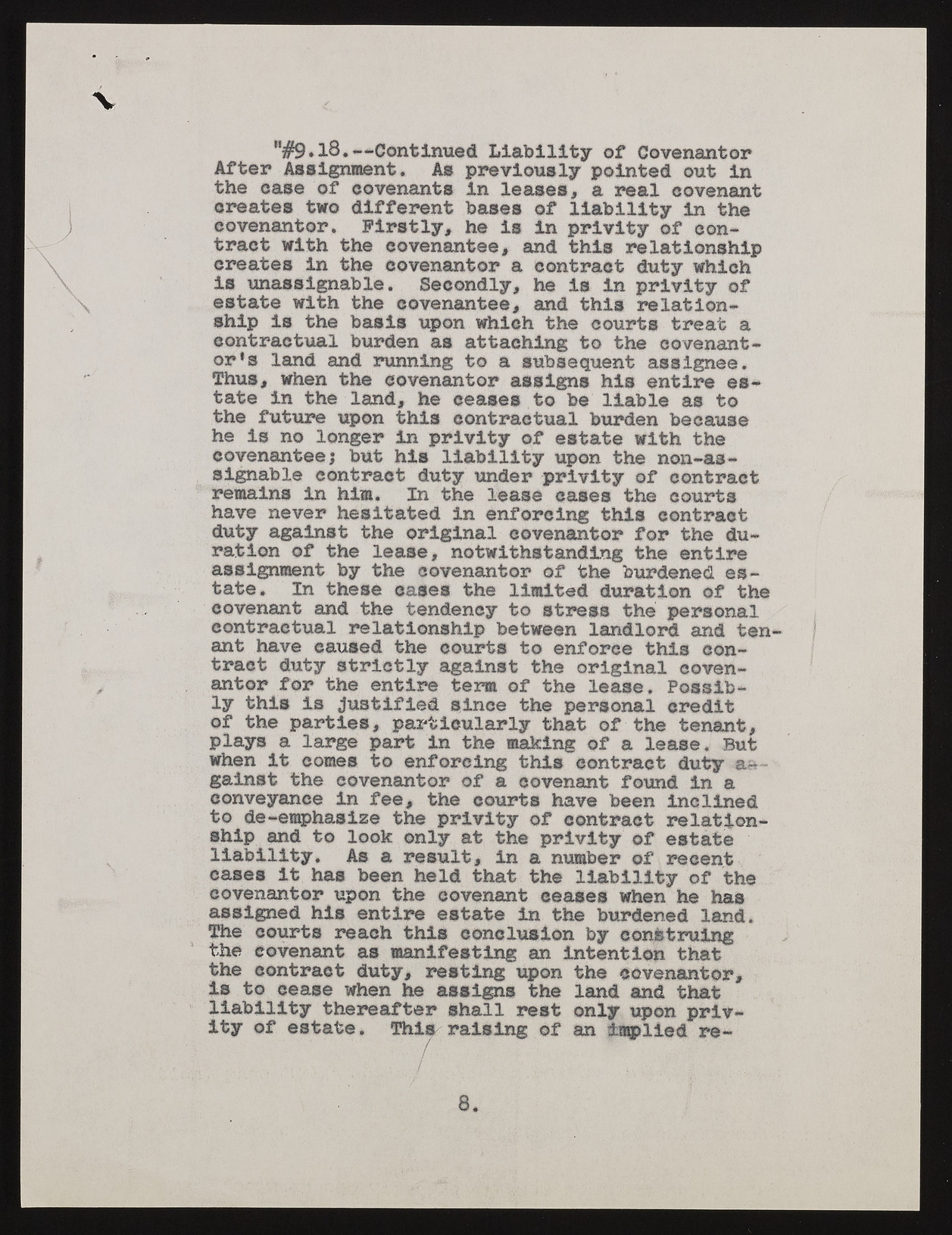Copyright & Fair-use Agreement
UNLV Special Collections provides copies of materials to facilitate private study, scholarship, or research. Material not in the public domain may be used according to fair use of copyrighted materials as defined by copyright law. Please cite us.
Please note that UNLV may not own the copyright to these materials and cannot provide permission to publish or distribute materials when UNLV is not the copyright holder. The user is solely responsible for determining the copyright status of materials and obtaining permission to use material from the copyright holder and for determining whether any permissions relating to any other rights are necessary for the intended use, and for obtaining all required permissions beyond that allowed by fair use.
Read more about our reproduction and use policy.
I agree.Information
Digital ID
Permalink
Details
More Info
Rights
Digital Provenance
Publisher
Transcription
V "#9•18,--Continued Liability of Covenantor After Assignment, As previously pointed out in the ease of covenants in leases, a real covenant creates two different bases of liability in the covenantor. Firstly, he is in privity of contract with the covenantee, and this relationship \ creates in the covenantor a contract duty which \ is unassignable. Secondly, he is in privity of estate with the covenantee, and this relationship is the basis upon which the courts treat a contractual burden as attaching to the covenantor’s land and running to a subsequent assignee. Thus, when the covenantor assigns his entire estate in the land, he ceases to be liable as to the future upon this contractual burden because he is no longer in privity of estate with the covenanteej but his liability upon the non-as- slgnable contract duty under privity of contract remains in him* In the lease cases the courts have never hesitated in enforcing this contract duty against the original covenantor for the duration of the lease, notwithstanding the entire assignment by the covenantor of the burdened estate. In these cases the limited duration of the covenant and the tendency to stress the personal contractual relationship between landlord and ten ant have caused the courts to enforce this contract duty strictly against the original covenantor for the entire tern of the lease. Possibly this is Justified since the personal credit of the parties, particularly that of the tenant, plays a large part in the making of a lease. But when it comes to enforcing this contract duty a-- gainst the covenantor of a covenant found in a conveyance in fee, the courts have been inclined to de-emphasize the privity of contract relationship and to look only at the privity of estate liability. As a result, in a number of recent cases it has been held that the liability of the covenantor upon the covenant ceases when he has assigned his entire estate in the burdened land. The courts reach this conclusion by construing the covenant as manifesting an intention that the contract duty, resting upon the covenantor, is to cease when he assigns the land and that liability thereafter shall rest only upon privity of estate. This raising of an dallied re- 8.

